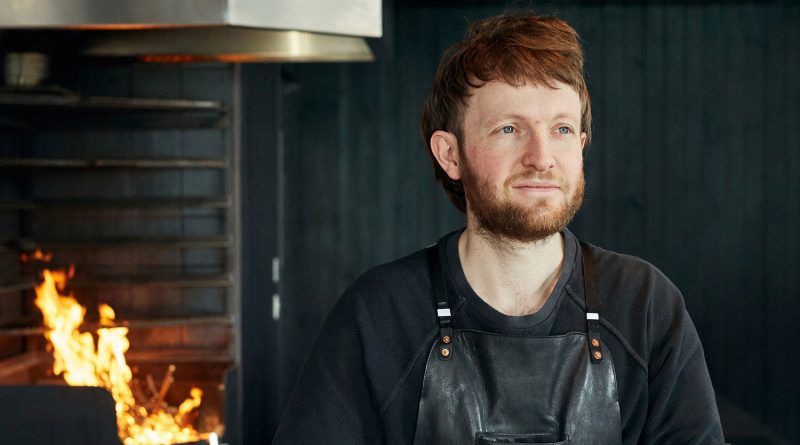Silo: the zero-waste restaurant making sustainability accessible
Silo, the world’s first ever zero-waste restaurant has reopened in Hackney Wick with a new focus, while remaining kind to the planet.
To celebrate their reopening, Silo is now a wine bar serving small food plates. Much like their zero-waste dishes, their natural wines are environmentally friendly, too.
What are natural wines, you say? They’re grown and fermented without the use of pesticides or additives and made without the use of any machinery. Naturally, they’re the only type of wines you’ll find there. So why a wine bar?
‘Well, I’ve always liked wines,’ says Doug McMaster, the mastermind behind Silo, with a hint of sheepishness audible over the phone where we are conducting the interview. ‘And I guess the fact that natural wines should be the only type of wine we should be drinking, in my opinion.’
The attention McMaster shows to selecting sustainable food and drinks extends to every part of Silo. Based in The White Building (which also houses Crate Brewery), every piece of furniture is recycled or sustainably sourced. The restaurant is also home to ‘BERTHA’, a giant grey machine that turns waste food into compost.
McMaster’s CV is a veritable who’s-who of the food world. He started off his career as a MasterChef Finalist and working in the world renowned, Michelin-star kitchens of Noma and Heston Blumenthal’s The Fat Duck.
But McMaster’s long term, one-man mission to take on what he calls the ‘industrial food complex’ and show that human waste can be eliminated means that despite his culinary establishment credentials, he gives off the impression of a defiant outsider.
Yes, there is a preconception that sustainability can be ‘righteous and holy’ (as a review in The Guardian described Silo), but McMaster has an unpretentious earnestness perhaps best exemplified by his new ‘recycled’ art project that will soon adorn the restaurant’s walls.
‘So in the kitchen, we inevitably create waste by accident all the time,’ he says. ‘For instance if we order milk from a plastic rather then a natural container. When we accumulate enough of this waste we will collect it and turn it into a piece of art by melding everything together to spell “human error”.’
This act, of turning mistakes into art, perhaps best captures McMaster’s attitude towards sustainability. It’s a kinder, more forgiving approach, contrary to perhaps some popular conceptions of veganism or developing sustainable habits. But why spell ‘human error?’
‘There are all these mistakes that happen every single week,’ he says. ‘And we’re never afraid to be honest. We shouldn’t hide that, it’s part of the learning process.’
McMaster’s laser-like focus on sustainability means that despite his accolade-laden career, it has been an uphill struggle since initially opening Silo in Brighton in 2014 before its current location in Hackney Wick.
‘For the longest time, it felt like no one was listening. I was trying really hard to show being zero-waste is possible. Then suddenly there was an episode about waste on Blue Planet and then suddenly it was everywhere.’
‘It’s really a personal thing,’ he says, when asked where his drive came from.
McMaster then goes on to explain, ‘Since I got it in my head that it is possible to cook good food without waste, I’ve been all about, “How do we get away from the negative side of industrial food industry?”‘
‘Waste,’ he says, ‘kills nature, and being zero waste imitates natural processes.’ It is this realisation that drives him.
After some introspection during the quiet months of lockdown, he realised that accessibility is the next step in his zero-waste mission.
‘How do we spread the message without being preachy, and make it accessible?’
It is safe to say McMaster isn’t just a restauranteur, but he’s a man on a mission to prove that it is possible to be zero-waste; that another alternative model to the current system of industrial food production is not only possible and scalable, but also that it is not as elitist as popular perception might deem it.
This is a major reason why he is working on a slew of new projects aimed at making zero waste practices people can take on everyday. It includes a new book, a whole host of online content.
After all, he’s very aware of the perception of elitism that comes with owning a zero-waste ‘concept restaurant’ in the same building as Crate Brewery in Hackney Wick, of all places.
‘Only a relative handful of people can go into a concept restaurant in London, but everyone in the world can go to Youtube or Instagram. There is a greater impact and I know there’s a great deal of potential online to share these things than an east London restaurant.’
That’s not to say he has a problem with Hackney Wick, rather the opposite.
‘I’ve always wanted Silo to be in Hackney Wick and east London.’ He indulges his own taste for wine at nearby ‘natural wine watering holes’ in his spare time in the Hackney Wick area (where he and Silo are based) such as Brawn and P Franco’s, which is a bit further out in Clapton.
If you’re curious about natural wines, one of McMaster’s new projects is to open a wine market stall at the White Building, in collaboration with Crate. ‘But I can’t say much about that,’ he says, with a smile virtually audible over the phone.
Well, you’ll find us sampling their wines at this mysterious new market stall, whenever it opens.
If you like this article, you might like to read about Bethnal Green’s Michelin star winning restaurant Da Terra.


